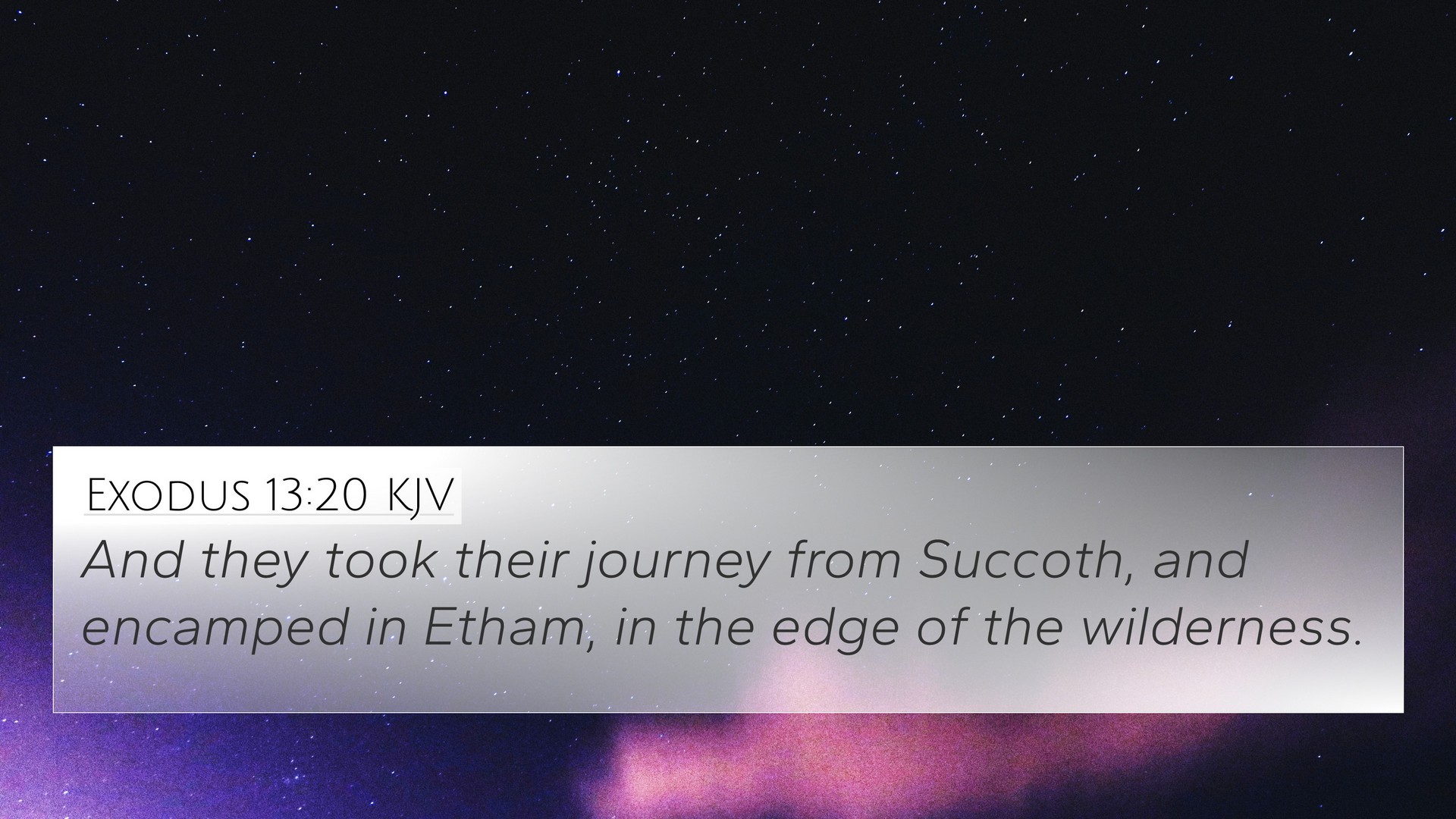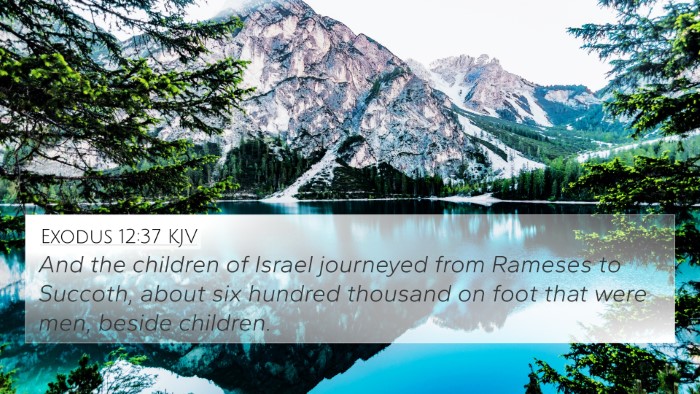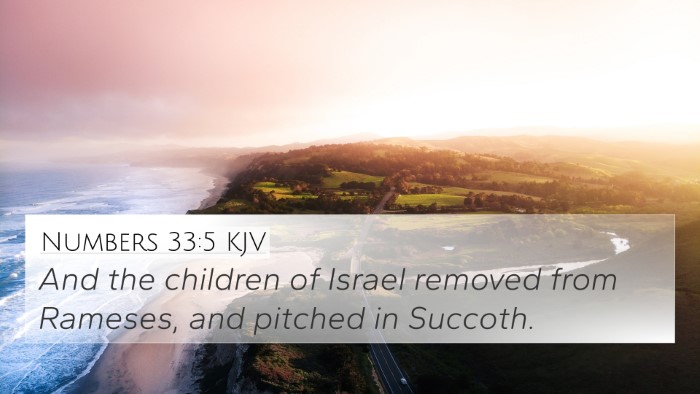Meaning and Interpretation of Exodus 13:20
Exodus 13:20 states, “And they took their journey from Succoth, and encamped in Etham, in the edge of the wilderness.” This verse marks a significant moment in the Exodus story, where the Israelites begin their journey from Egypt to the Promised Land.
Contextual Overview
Exodus 13 describes the instructions given by God to Moses regarding the consecration of the firstborn and the celebration of the Passover. The departure of the Israelites is a crucial step in fulfilling God's promise to deliver them from slavery.
The locations mentioned—Succoth and Etham—are not merely geographical; they symbolize transition and divine guidance. The movements of the Israelites reflect both their physical journey and their spiritual awakening towards reliance on God's direction.
Commentary Insights
-
Matthew Henry's Commentary:
Henry emphasizes the importance of the journey itself as a practical demonstration of faith. He notes that the Israelites not only left Egypt physically but were called to embark on a spiritual journey towards obedience and faithfulness to God.
-
Albert Barnes' Notes:
Barnes highlights that Etham, the encampment in the wilderness, represents a place of preparation. This wilderness experience is critical as it prepares the Israelites for trials ahead, teaching them reliance on God's provision.
-
Adam Clarke's Commentary:
Clarke points to the symbolic nature of the names of the locations, linking them to themes of redemption and divine guidance. He stresses that each step taken by the Israelites is an exercise in faith that serves to bring them closer to the fulfillment of God's promises.
Cross-References to Exodus 13:20
This verse connects with several other Bible passages, enhancing our understanding through Bible verse cross-references. Here are some related scriptures:
- Exodus 12:31-32: The command for the Israelites to leave Egypt.
- Genesis 15:13-14: God's promise to Abraham regarding the Israelites' future.
- Exodus 14:1-4: The Israelites' subsequent crossing of the Red Sea.
- Numbers 33:5-6: A listing of the encampments of the Israelites during their journey.
- Deuteronomy 8:2: Reflecting on the lessons learned in the wilderness.
- Hebrews 11:29: A New Testament reference to the faith of the Israelites crossing the sea as a form of deliverance.
- Psalms 105:37: Highlighting the Exodus as an act of God's power.
Thematic Connections
Examining connections between Bible verses reveals common themes of deliverance, faith, and divine guidance. This verse, and its context, can be understood as a precursor to the trials and triumphs that define the Israelite experience throughout the Old Testament.
Furthermore, the journey from Succoth to Etham underscores the principle of cross-referencing Biblical texts to gain insight into the narrative of God's ongoing salvation history. The movement through wilderness, both literal and metaphorical, resonates with the spiritual journeys depicted throughout scripture.
Tools for Cross-Referencing
When studying passages like Exodus 13:20, utilizing tools for Bible cross-referencing can deepen understanding. Resources such as Bible concordances and cross-reference guides are invaluable for connecting verses. Here are some study methods:
- Bible Concordance: An alphabetical listing of words and phrases to find relevant scripture.
- Cross-Reference Bible Study: A methodical approach to tracing themes and topics across different books.
- Comprehensive Bible Cross-Reference Materials: Books and online tools that offer extensive cross-referencing capabilities.
Conclusion
The journey described in Exodus 13:20 illustrates not only a physical relocation but also a profound spiritual transition for the Israelites. It serves as a reminder for believers today of the importance of faith, obedience, and recognizing the guiding hand of God in life's journeys.
As you study this passage and related verses, keep in mind the thematic Bible verse connections that emerge and the way they all point toward a deeper understanding of God's overarching plan for humanity.




